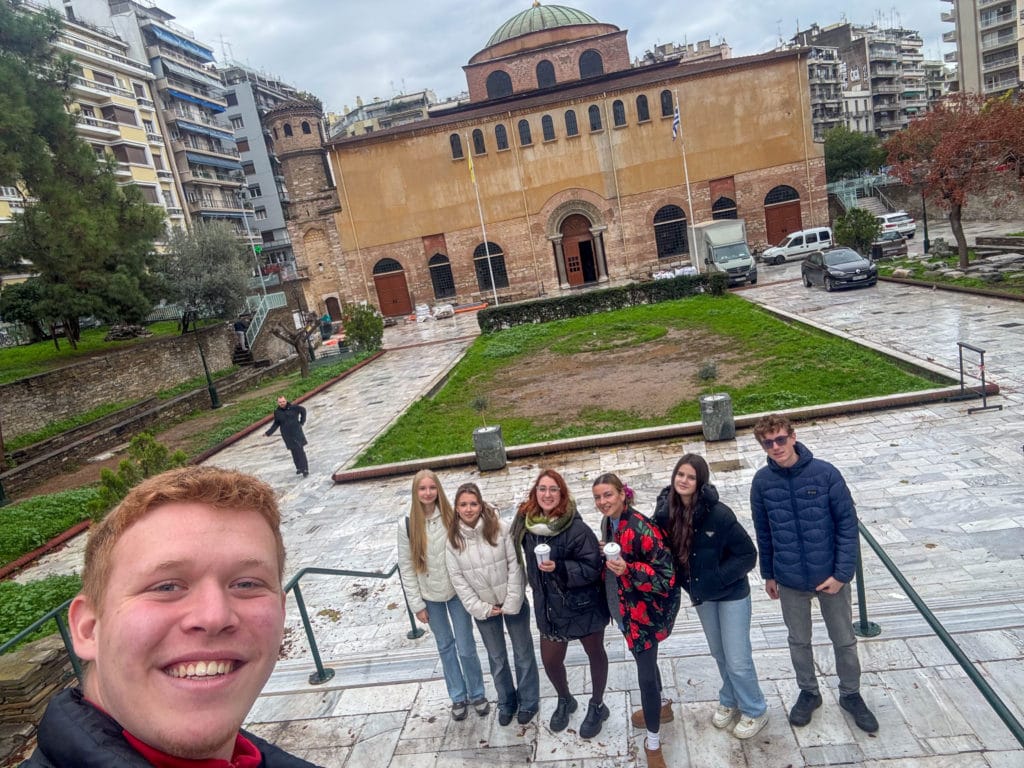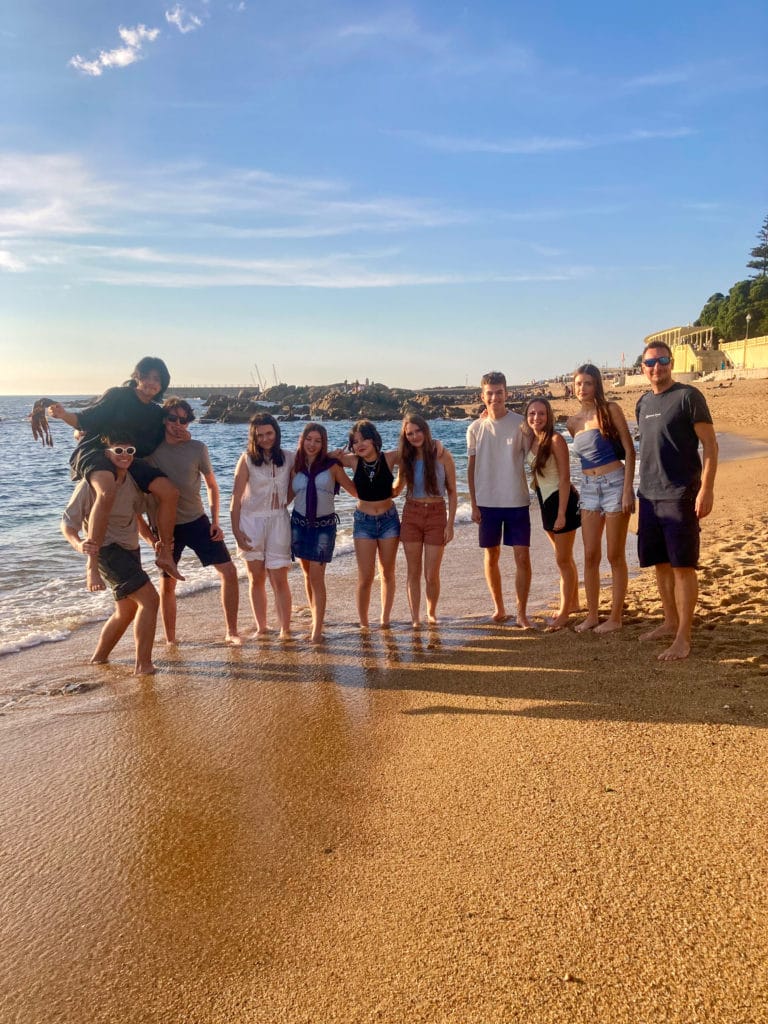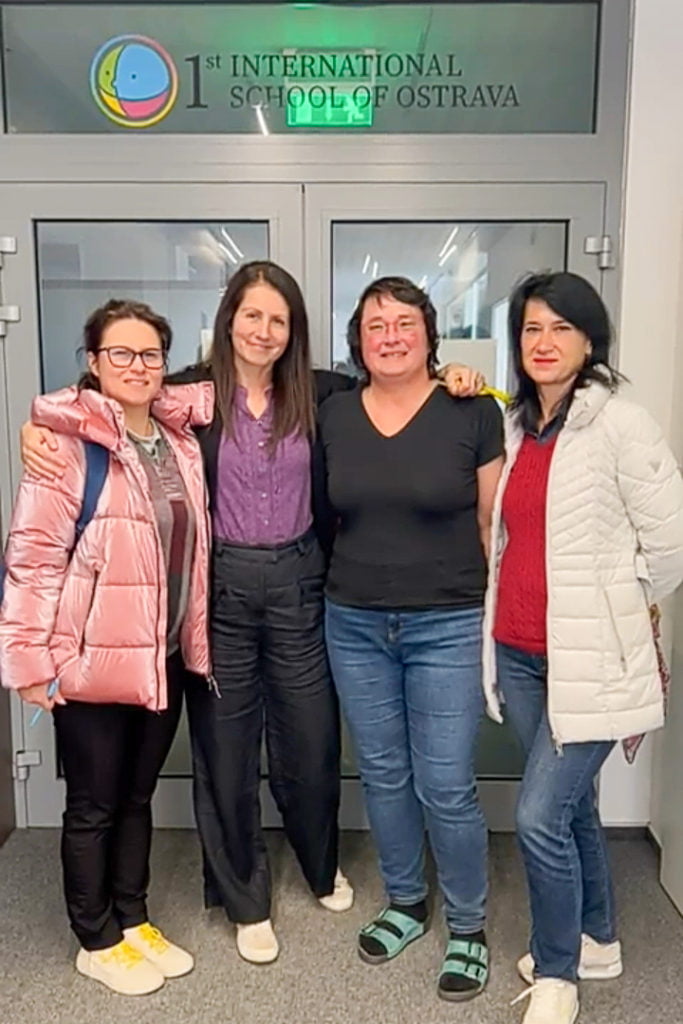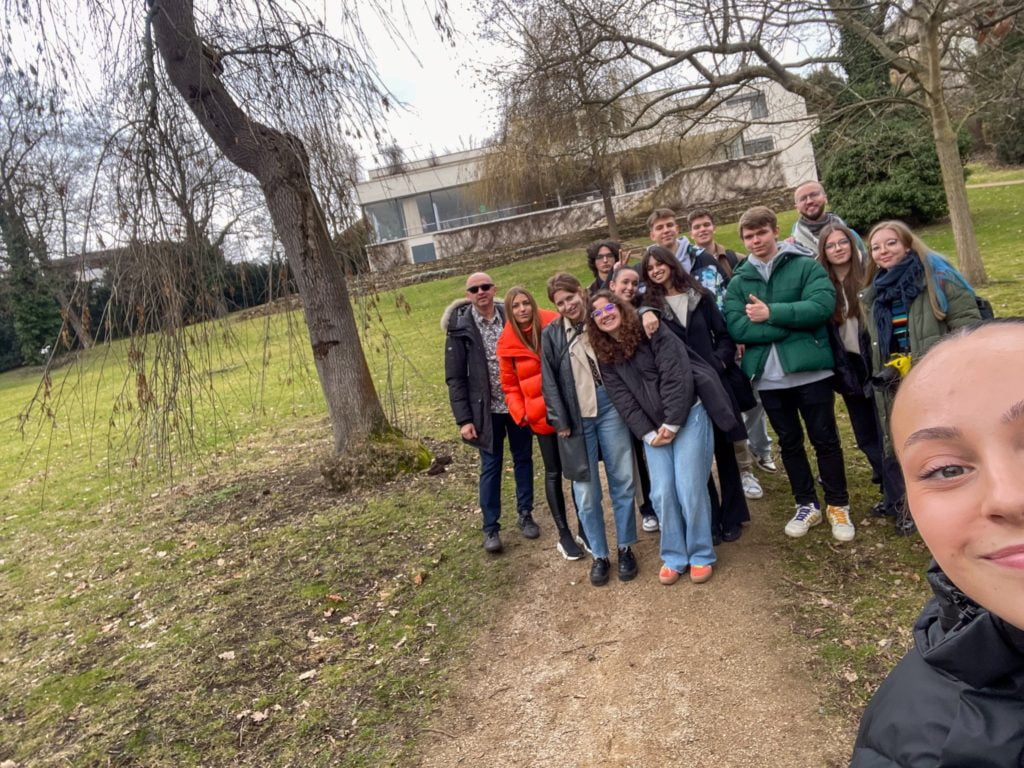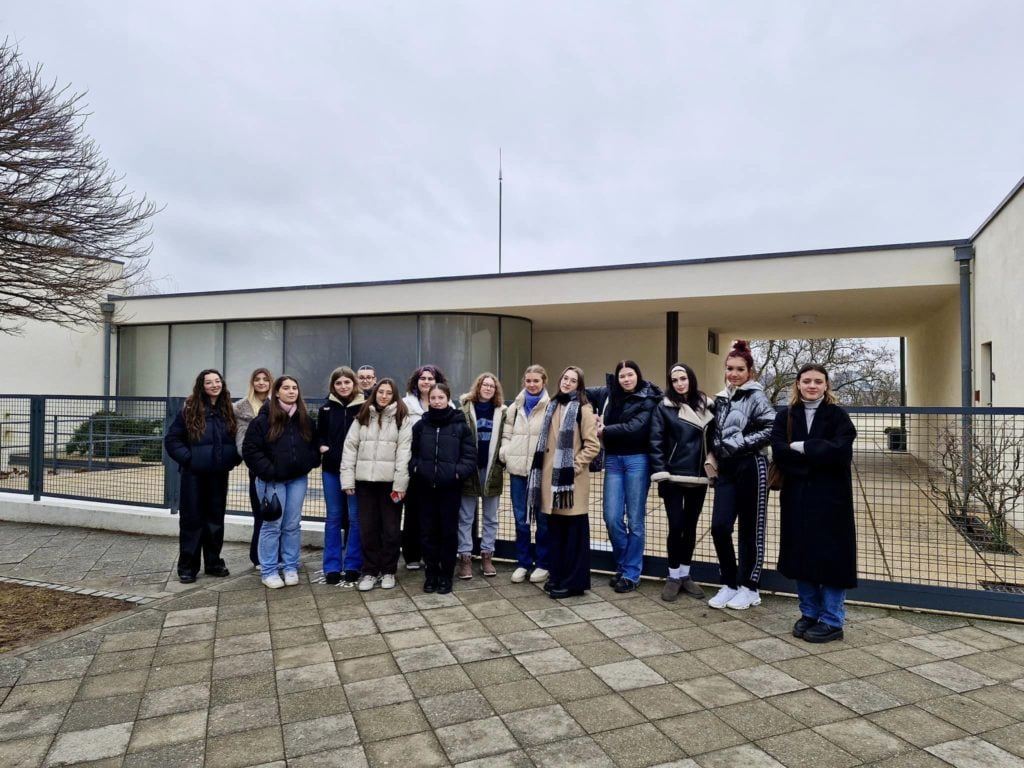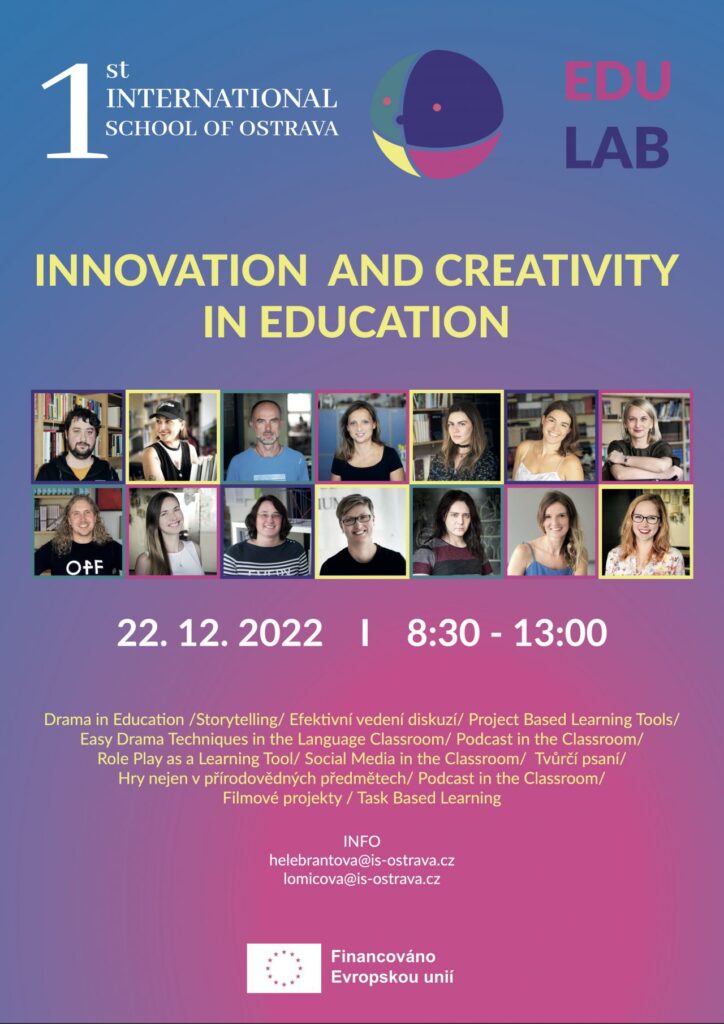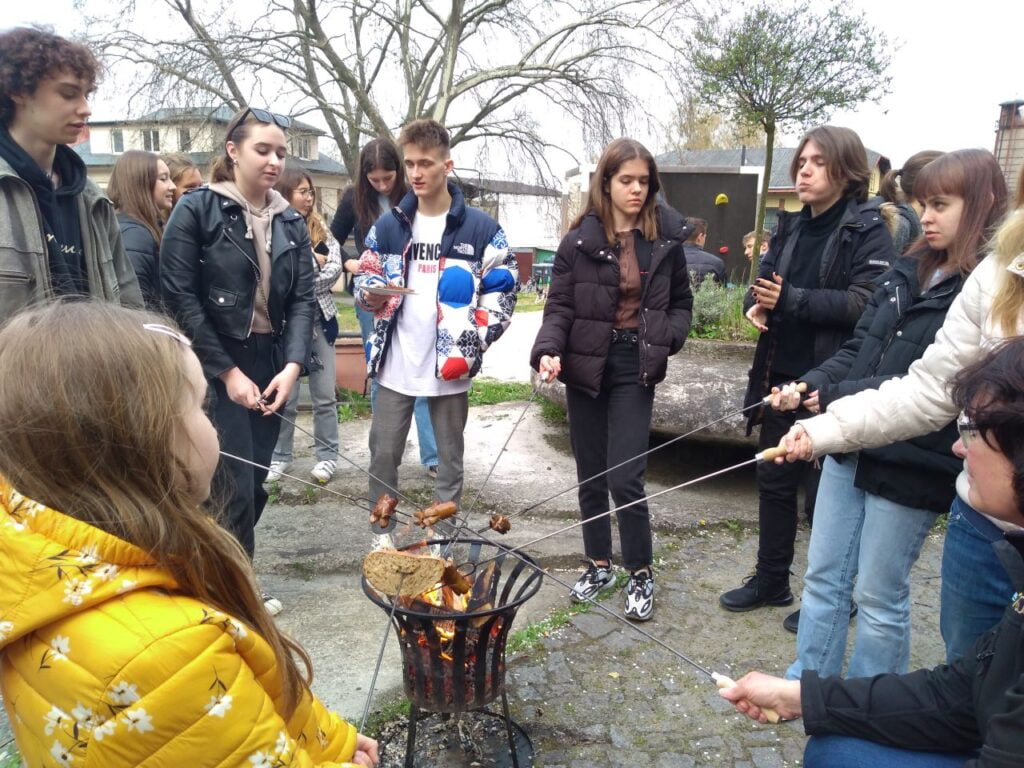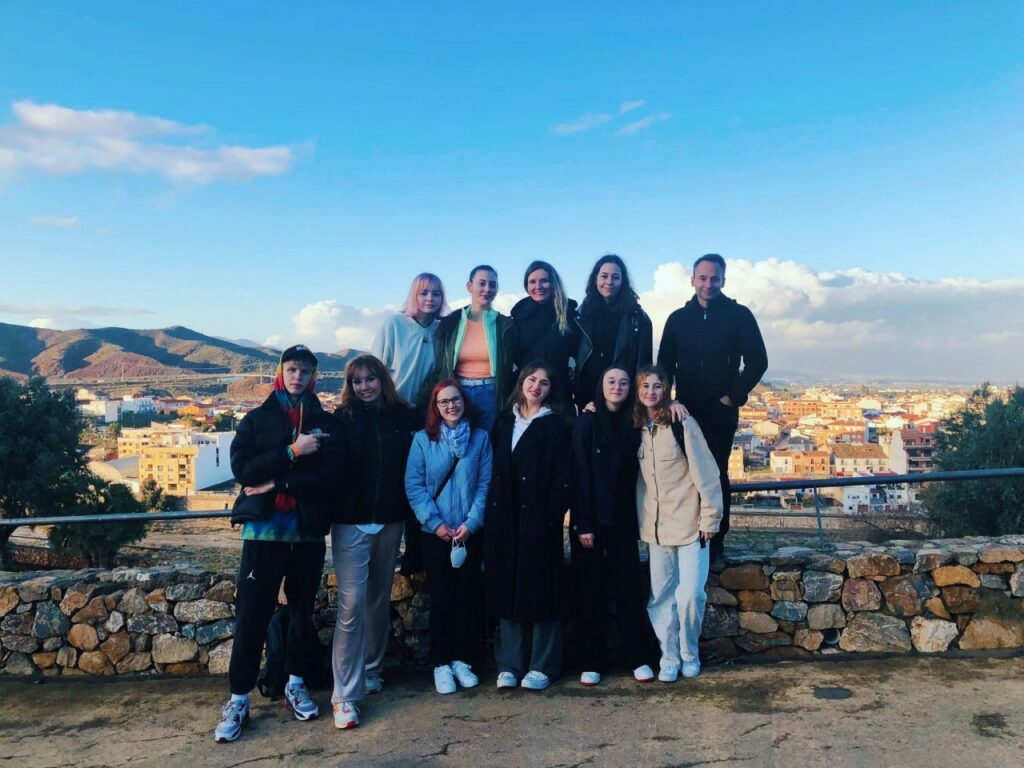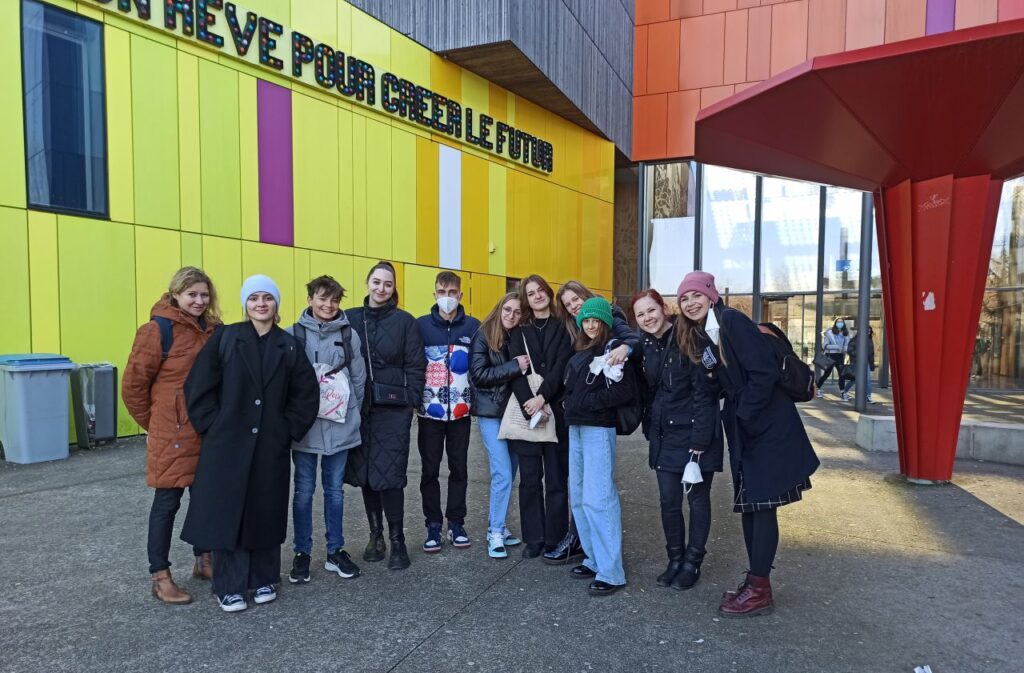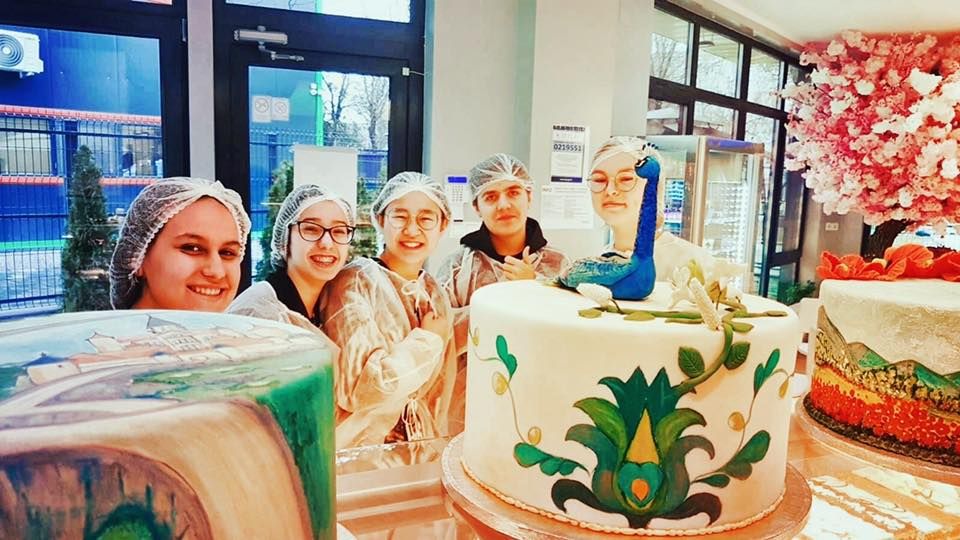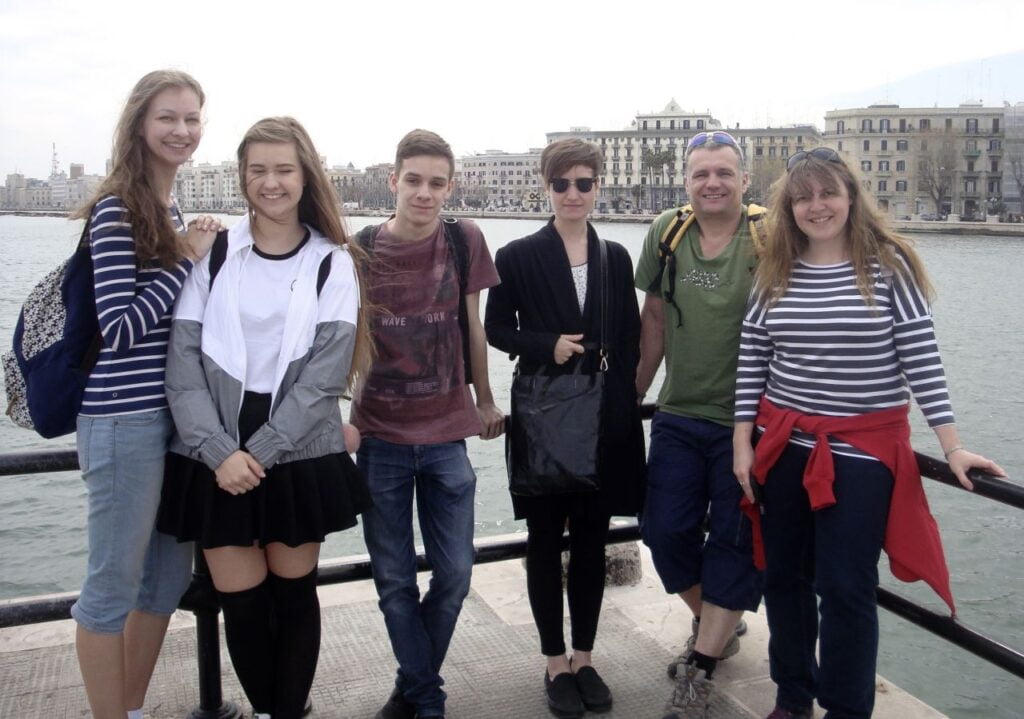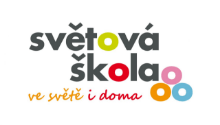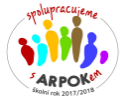Erasmus+ is an educational programme of the European Union that supports cooperation and mobility in all areas of education, vocational training, sport, youth, and non-formal learning.
The Erasmus+ programme is open to students, teachers, apprentices, volunteers, youth leaders, and representatives of amateur sports organisations. It can also provide funding for partnerships between educational institutions, youth organisations, businesses, local and regional authorities, and NGOs, as well as for reforms in EU member states aimed at modernising education and training and promoting innovation, entrepreneurship, and employability.
At our school, the Erasmus+ programme has been running since 2015, following on from the previous Comenius project, which we had been part of since 2009.
Erasmus+ at our Gymnasium (2023–2027)
Our school holds an Erasmus+ accreditation for 2023–2027, allowing us to systematically develop international cooperation, enhance students’ language and intercultural skills, and provide teachers with opportunities for professional growth. Erasmus+ is a key tool for integrating European values into school life – openness, solidarity, respect, and collaboration. It enables students and teachers to experience schools, cultures, and educational systems across Europe and bring inspiration back to our school, making education more dynamic, creative, and globally connected. Erasmus+ fosters personal and professional development, empathy, intercultural understanding, and active citizenship, while providing teachers space for innovation and sharing best practices.
2023–2024 – Facing History and Ourselves through Storytelling
In the first year of our accreditation, three student group mobilities took place in: Spain (the Canary Islands); Greece (Chania), and Italy (Pesaro). The project focused on the power of storytelling as a tool to understand oneself and others. Students explored personal and social identities, developed empathy, and learned the importance of active engagement in society with respect for diversity and humanity. Sharing stories across cultures – through texts, poetry, and comics – helped students understand that local stories are part of a broader, global narrative. This approach promoted equality, inclusion, gender balance, and respect for diversity. Storytelling and comics as educational tools enhanced literacy, creativity, digital skills, and the ability to think critically about real-life problems. The project also inspired new teaching approaches and fostered creative, collaborative, and social skills among students and teachers.
2024–2025 – Engage, Empower, Evolve: Active Citizenship
The main theme of the year was “Engage, Empower, Evolve: Active Citizenship”, focusing on sustainability, active citizenship, and project-based learning. The concept was successfully implemented across all activities – from short-term individual student mobilities, through teacher training workshops, to group student mobilities. Five students participated in short-term individual mobilities in Pesaro, Italy, demonstrating adaptability, motivation, and proactive engagement in all learning tasks. Staying with host families allowed them to build friendships, improve language skills, and gain a deeper understanding of Italian culture, supporting their personal growth and social skills. Six teachers attended international courses in Valencia, Florence, Dublin, and Barcelona, covering project-based learning, sustainability, digital competency, multimedia in education, and sharing best practices, which they later shared with colleagues through 1st ISO EDU LAB workshops. A group mobility of eight students journeyed to Warsaw, Poland, resulting in the community project Locals, focused on circular economy and sustainable business. Locals was awarded the National Prize for Best Service-Learning Project in the Czech Republic and has advanced to the European finals.
2025–2026 – Sport Makes History: Athletes Against Injustice
This year’s Erasmus+ group mobilities focus on the connection between sport, identity, and social justice through storytelling. Students explore real-life stories of athletes who had the courage to stand up against injustice, reflecting on their own values, developing empathy, and considering how individuals can contribute to a fairer world. As part of the project, students will participate in group mobilities in Portugal, Greece , and Sweden , collaborating with peers from partner schools and bringing these stories to life through creative methods such as storytelling and comic creation. The project develops language and digital skills, critical thinking, intercultural understanding, and social responsibility, helping students become engaged and active citizens.

